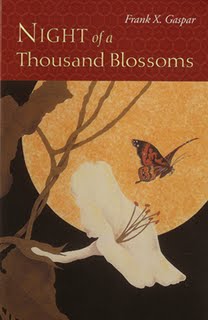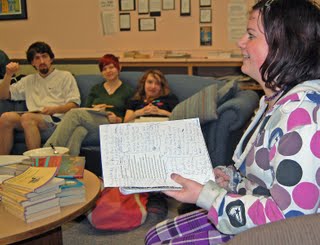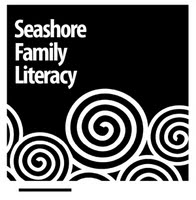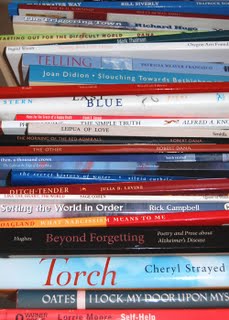
A bounty of books has left me, once again, scattered and satisifed. Rain, shine, winter, spring, I've always an excuse to curl up and read. This week I've devoured an unusual mix:
• Killshot, by Elmore Leonard
Murder with a side of wry (a shout-out to Fred for suggesting this book)
• A Changed Man, by Francine Prose
A clever novel about a white supremacist turnabout.
I've recently discovered Prose (author of Golden Grove, Blue Angel) and am steadily making my way through all her fiction.
• Night of a Thousand Blossoms by Frank Gaspar
Lush, smart, prose-like poetry.
He's got great titles and beautifully orchestrated searches for truth. I love the opening line of this poem:
There Were Footsteps in the Garden
I can’t figure out the earth, everything saying yes and no
at the same time, everything shedding its hair and licking
its teeth and waiting to be eaten. And then there are the
great wings of the galaxies I’m looking at as they shudder
through the wilderness like spirits until they stoop through
my garden of lenses and mirrors. What is the loneliness
of all those shattered islands, what is so lofty, so hungry,
so intelligent, so needy about them? I’m reading in a holy
book about how the color red shifts and retreats in this
sidereal world, as though the stars are trying to hide
their forms from one another, as though they are afraid
of their nakedness─they all race away, and only the distance
grows, only the distraction, as if that were the point. Now
the yard is so quiet I can hear the snails being pulled
through the long grass by some reckless force beyond their
snail imagination. There are sayings now that would help me.
They would be nothing by daylight. The words try to avoid
embarrassment too. How can you blame them? But in
these pure hungers of the night it is another story. Precisely
another story, and then another and another. Oh, there were
footsteps in the Garden, all right. There was a firmament
hung with lights. But that was then. This is now. That’s what
makes me ask for the next story. That’s what makes me curl
in the blanket on the shivering grass and stare outward. That’s
what makes tonight so safe for this one thing I’m trying to say.
— Frank Gaspar, from Night of a Thousand Blossoms
 Happy Poem In Your Pocket Day!
Happy Poem In Your Pocket Day!

















